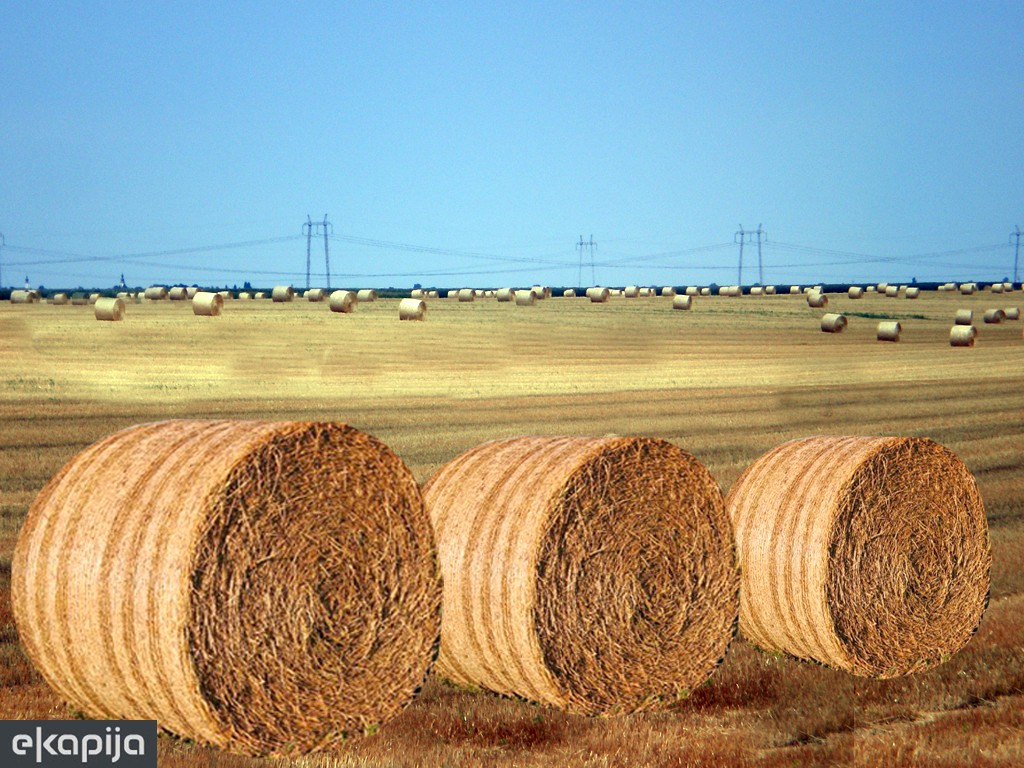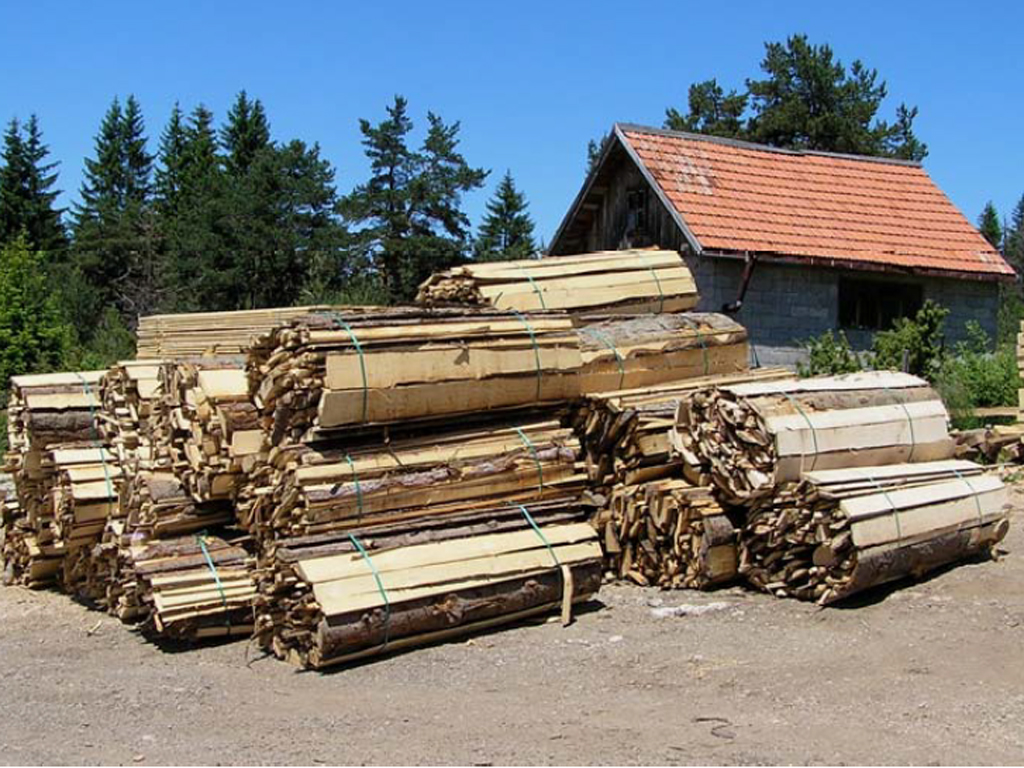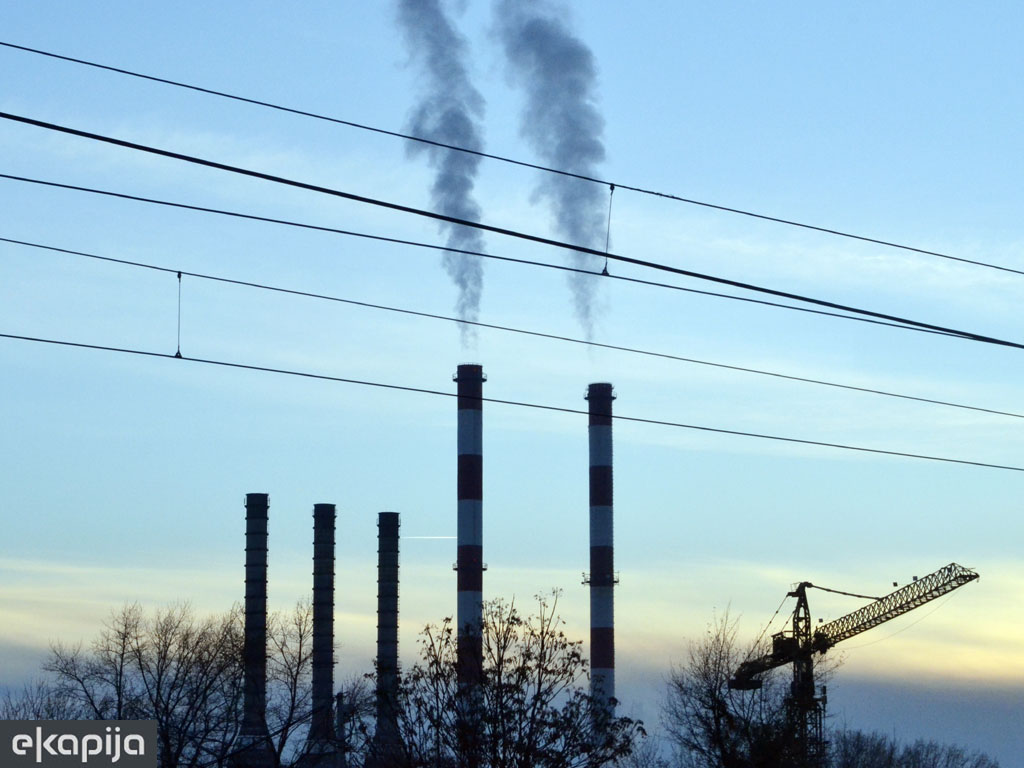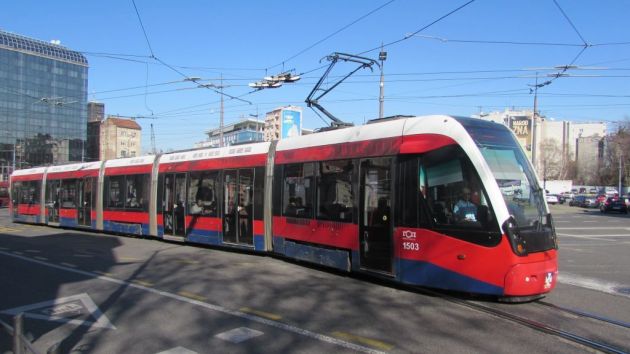KfW provides EUR 100 mil – Are municipalities in Serbia ready to move to bio mass heating in 2015?
 Wednesday, 19.02.2014.
Wednesday, 19.02.2014.
 14:38
14:38

In a year, the first heating plants in Serbia could switch to using biomass as fuel. A favorable loan of EUR 100 mil for eight local self-governances in Serbia was provided by the German development bank, KfW. It is only necessary that Zrenjanin, Negotin, Bajina Basta, Trstenik, Sabac, Priboj, Cacak and Jagodina decide whether they want safe and cheaper heating.
The Pre-feasibility Study within the "Promotion of renewable energies – biomass market development in Serbia” project , which defined heating plants in Serbia which have an option to move from heavy oil, coal and gas to biomass in the next four years, will be completed in late February.
As Aleksandar Macura, an independent energy consultant said for our portal, for majority of municipalities comprised within this pre-feasibility study, pre-feasibility studies have already been done through USAID support. It is the document named "Prefeasibility assessment of biomass district heating applications in Serbia" prepared by the International Resources Group (IRG), and where our collocutor participated in development of one out of 4 sub-studies with respect to heat distribution developed management.

- It is not clear why the studies were done again although both KfW and municipalities were aware of the existence of previous documents. There are many local self-governances which could switch to biomass. The number is most likely higher than 30. However, it is necessary to see for every self-governance whether there is a better solution, first of all when it comes to waste heat consumption or some other low temperature source – Macura says for eKapija.
Decision of local self-governances
Petar Vasiljevic says that parliamentarian elections will not affect project implementation but investment amount since local self-governances will not find it easy to become indebted.
- The limitating factor is the investment amount, when municipalities see they should loan EUR 10 or 20, they will not find it easy. However, the loan provided by the German government is very favorable, with a grace period of two years, depending on construction period. For the period of feed in fee usage, payment will be with a minimal interest rate of 2-3%. This kind of a credit line cannot be easily found. Pre-study defines investment return period. – Vaisljevic explains.
Apart from funds, Aleksandar Macura sees other problems for our towns and municipalities to move to biomass heating as well.

- The USAID project developed a business model as well which takes transformation into account as well. I deeply believe, which was confirmed by diverse research results, that in current organization, local self-governance- public company, cannot reach sustainable transition in any direction. Apart from technology, other knowledge is required as well in order to carry out this switch. A commercial investor will not invest in this kind of an environment and different investment will not bring a sustainable development. Privatization is not necessary - our collocutor explains.
In Trstenik, one of the municipalities which entered the funding selection for switch of heating to biomass with the support of the KfW’loan, they say they are interested in using biomass for heating but that they are yet to make a final decision.
- We received preliminary results of the pre-study which we are going to analyze. We should meet with the representatives of KfW bank and the Ministry in order to start negotiations. When we get a specific offer and precise funding terms, we will make a decision - Boris Vukmirovic, director of PUC Energetika Trstenik says for our portal.
Municipalities such as Nova Varos, Kikinda, Knjazevac, Kosjeric, Novi Pazar, Kladovo and Velika Plana, which did not enter the final round of selection for the KfW’s loan, can try to fund move to biomass heating on their own or to potentially find a private partner.
Heating and/or electricity
Out of eight selected towns, six thermal power plants should move to combined heat and power production while two of them will continue operating with the classic facility.

- This will be the most profitable for power plants which planned combined facilities because of feed in fee for electricity. Apart from the fact that consumers will have cheaper heating, environment will be cleaner, local citizens and farms will collect and sell biomass for these needs and altogether it will contribute to new vacancies – Vasiljevic said February 14 at the meeting on heating in Serbia organized by the Central European Development Forum (CEDEF).
Accoring to the project, thermal power plants which are staring move to biomass this year and which hproduce only heat energy, will be able to start operating using new fuel within a year period of time while thermal power plants which will produce both heat and power at the same time, will be able to end this modernization process in two years time.
Aleksandar Macura, mentions he did not see KfW’s pre-study but he points out that production oh heat from biomass with minimal or none electricity production is still an optimal solution for majority of distant heating systems in Serbia.
- Since remuneration of these investments driven by feed-in fee, depends on ability of the state to pay feed in fee in the long term, on which heating security will depend on since feed in fee subsidizes the price of heat on the account of premium which citizens pay for electricity. In case when an investment is not based on feed in fee, business terms are different–Aleksandar Macura mentions.
Although many local self-governances in Serbia carried out diverse studies, none of them moved to biomass-driven heating (excl. Beogradske termoelektrane which have a 0, 44% stake in total production).
Distant heating systems iin Serbia in 2013 owed fuel suppliers some EUR 350 mil, an amount nearly equal to annual expense for fuel of all systems. When one takes into consideration difficulties with heavy oil procurement, it is obvious these problems cannot be solved without investments in new technologies of heat energy production based on renewable energy sources.
Suzana Obradovic
 KfW kancelarija Beograd
KfW kancelarija Beograd
 Ministarstvo rudarstva i energetike Republike Srbije
Ministarstvo rudarstva i energetike Republike Srbije
 Grad Jagodina
Grad Jagodina
 Grad ÄŚaÄŤak
Grad ÄŚaÄŤak
 Opština Priboj
Opština Priboj
 Grad Ĺ abac
Grad Ĺ abac
 Opština Trstenik
Opština Trstenik
 Skupština opština Bajina Bašta
Skupština opština Bajina Bašta
 Opština Negotin
Opština Negotin
 Grad Zrenjanin
Grad Zrenjanin
 JKP Beogradske Elektrane
JKP Beogradske Elektrane
 USAID Srbija
USAID Srbija
 JKP Energetika Trstenik
JKP Energetika Trstenik
 Opština Velika Plana
Opština Velika Plana
 Skupština opštine Kladovo
Skupština opštine Kladovo
 Skupština grada Novi Pazar
Skupština grada Novi Pazar
 Opština Kosjerić
Opština Kosjerić
 Opština Knjaževac
Opština Knjaževac
 Grad Kikinda
Grad Kikinda
 Opština Nova Varoš
Opština Nova Varoš
 Centralno-evropski forum za razvoj - CEDEF Beograd
Centralno-evropski forum za razvoj - CEDEF Beograd
 KfW Bankengruppe Frankfurt am Main
KfW Bankengruppe Frankfurt am Main
Most Important News
06.04.2024. | Agriculture
Preconditions for Placement of Fresh Blueberries and Dried Plums in Chinese Market Secured

16.04.2024. | News
Jovan Ciric, Leasing Director Retail MPC Properties – MPC Echo symbolizes our desire for good ideas and innovative endeavors to spread freely and bring about positive changes

16.04.2024. | News
10.04.2024. | Finance, IT, Telecommunications, Tourism, Sports, Culture
Creative Industry – What This Serbian Economy Sector Worth EUR 2 Billion Encompasses

10.04.2024. | Finance, IT, Telecommunications, Tourism, Sports, Culture
18.04.2024. | Industry, Finance
Here come the new hunters for Serbian gold – Australian Strickland Metals buys mining project on mountain Rogozna

18.04.2024. | Industry, Finance
16.04.2024. | News
Economy Fair in Mostar opens – 26 companies from Serbia exhibiting

16.04.2024. | News
18.04.2024. | Transport
Jovanovic: Purchase of Siemens trams produced in Kragujevac for GSP Beograd should be considered

18.04.2024. | Transport


 Izdanje Srbija
Izdanje Srbija Serbische Ausgabe
Serbische Ausgabe Izdanje BiH
Izdanje BiH Izdanje Crna Gora
Izdanje Crna Gora


 News
News






